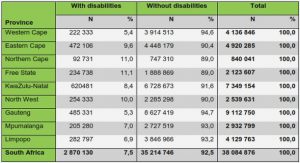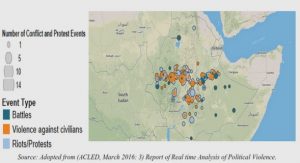Get Complete Project Material File(s) Now! »
Introduction
Current discourses on sustainable agriculture (encapsulating issues such as the advantages of organic and conservation farming, action research such as participatory agrarian technology development and adaptive collaborative management, to name a few)1, environmental management, nature conservation, global warming and climate change, among others, have refocused world attention on the status of African agriculture. This is because it is generally believed by both development practitioners and academics that the continent faces a number of risks owing to severe food insecurity. It is postulated that food production on the African continent is unlikely to increase in the foreseeable future, while the continent’s population and food deficit are projected to continue to increase.2, Experts also postulate that Africa will, in comparison with other continents, continue to be the most affected by the impacts of global climate change.3, Thesedevelopments have recently redirected the attention of scholars to African agricultural, demographic and environmental issues.4,It is environmental aspects (soil conservation) of this scholarship that this study is mainly interested in.
Scope of Study
This thesis examines the rise of environmentalism – specifically soil conservation in the white agrarian sector – in colonial Zimbabwe from 1908 to 1980. It examines the evolution of environmental awareness in the settler agrarian sector and evaluates whether the presence or absence of environmental consciousness among the farmers influenced their notion of belonging and their agrarian mindset (their attitudes, views and perceptions as a farming class).
The subject
A study of conservation in the colonial period is essential because little research has been carried out on conservation in the settler farming sector in the colonial period, let alone at a micro level as this study does with the Bromley settler farming district. The enactment of the Natural Resources Act, 1941 was a major milestone in the colony’s history. This was so because of two reasons. First, the Act laid a strong foundation for conservation and preservation of the colony’s natural resources. The Act provided for the formation of a Natural Resources Board (NRB), a statutory body with powers equivalent to the Magistrates Court. Section 17 of the Act stated;
The Period
This thesis examines conservation on settler farms from 1908. That year is an important benchmark in the colony’s white agricultural history. It was in 1908 that the British South Africa Company (hereinafter, the Company) administration launched a White Agricultural Policy (henceforth WAP).Though from the onset of occupation “African land rights were written off”, the Company and the settlers had largely directed their attention to gold mining as they hoped to find a “Second Rand” in the colony.The launch of WAP in 1908 entailed the Company’s “burial of the Second Rand myth”and the shifting of emphasis from mining to settler commercial farming. A raft of measures were put in place from 1908 to support the settler agricultural sector and to make African agriculture less able to compete against settler farming, including the establishment of Agricultural colleges, provision of finance through the Land Bank (created in 1912), land sales on easy terms, and the development of an agricultural climate in which African farmers would not be able to compete with settler capitalist farmers.
Abstract
Acknowledgements
Chapter 1: Introduction
Introduction
Overview of Historical Soil Issues in Africa
The Development of Soil Conservation as a Discipline
Soil Erosion in Southern Africa: a Regional Context
Historiography of Resource Conservation in southern Africa
Was Soil Conservation a Good Thing?
Scope of Study
Rationale of the study
The Period
The Study Area
Objectives
Research Methodology
Context: Colonial Conservation in Perspective
Analytical Framework
Political Ecology
Community Conservation
Settler Culture/Settler Post-Colonial Theory
Outline of the Study
Chapter 2: A Slow Start: Soil Conservation on Settler Farms under Company Rule
Introduction
Background: Towards a White Agricultural Policy (WAP)
Awareness of the need for Conservation before 1908
The Role of the Company in Promoting Settler Agriculture from 1908
Company Land Settlement Policy
Conflict: Contradictions in Company Policy
‘We are not Philanthropists!’ The Company vs. its shareholders
‘Provide Adequate Labour!’ The Native Labour Question
Conflict between Farmers and Miners over Timber
Ecological Concerns in the Settler Agricultural Sector
End of Company Rule
Conclusion
Chapter 3: Soil Conservation and the Politics of Transition: Settler Agriculture under Responsible Government, c. 1924-34
Introduction
Lost Years: Transition from Company rule to Responsible Government
Liberty in Rags or Well-fed Tutelage? Self-Rule versus Accession
Whither Jameson’s ‘Young, Vigorous Rhodesian Child’?
Land Settlement and Land Legislation in the Responsible Government Era
Towards Land Apportionment Legislation
The Rise of Ecological Concerns, 1924-34
European Maize: A Combination of Poor Methods and Monoculture
European Tobacco: From High Hopes to Disaster
Conservation in African Reserves
International Factors: The Dust Bowl Disaster
From Moffat to Huggins
Conclusion
Chapter 4: Soil Conservation and State Control, 1934-44
Settler Agriculture, 1934-44: Background and Context
Government Intervention from the 1930s
The Farmers’ Debt Adjustment Programme
The African Labour Question
The Creation of Control/Marketing Boards
State Intervention in Soil Management
Evidence given to the Commission
The Natural Resources Act, 1941
The Natural Resources Board (NRB) Farming Enquiry of 1942
Conclusion
Chapter 5: Towards Community Conservation: The Intensive Conservation Areas (ICAs)
Movement c. 1944-53.
Introduction
Background: The Agricultural Environment, 1939-1940s
The Birth of Intensive Conservation Processes
Intensive Conservation Processes in Bromley
Intensive Conservation in Practice in Bromley
The Food Production Drive
Community Conservation at Work
The Birth of a Conservationist Identity
Conclusion
Chapter 6: The ICAs in the Federal Period, 1953-63
Introduction
Background: Overview of Settler Agriculture in the 1940s
The Politics of Unity: Amalgamation or Federation?
Continuity: Land Settlement Policy in the 1950s
The Bromley ICA in the Federal Period
Challenges to Effective ICA Work
The Question of Labour Tenancy
Shortage of Conservation Officers
Faulty and Poor Construction of Works
Challenges Relating to Equipment
Lack of Co-operation from Landowners
Funding Constraints
rogress of ICA Work
Farm Planning and Aerial Surveys
Dam Building
Fire Control
Propaganda Work
The Bromley ICA and the Road Council
Evaluating Conservation Work in the Federal Period
The Fall of the Federation
Conclusion
Chapter 7: ‘Mud Pies and Msasa Leaves’: UDI and Soil Conservation, 1965-1979
Introduction
Did Soil Erosion Worsen During UDI?
Background: From Dissolution of the Federation to UDI
UDI and Sanctions
Conservation under UDI Sanctions
Rise of Armed Conflict
Conclusion
Chapter 8: Assessment and Conclusion
Introduction
The Role of the State
The Company Period
The Responsible Government Period
Settler Attitudes to Land, Farming and Soil Erosion
The Development of and Role of Local and International Ideas
Did Community Conservation result in a “Conservationist Identity” among Farmers?
Conclusion
Bibliography
GET THE COMPLETE PROJECT
Soil Conservation and the White Agrarian Environment in Colonial Zimbabwe, c. 1908-1980






